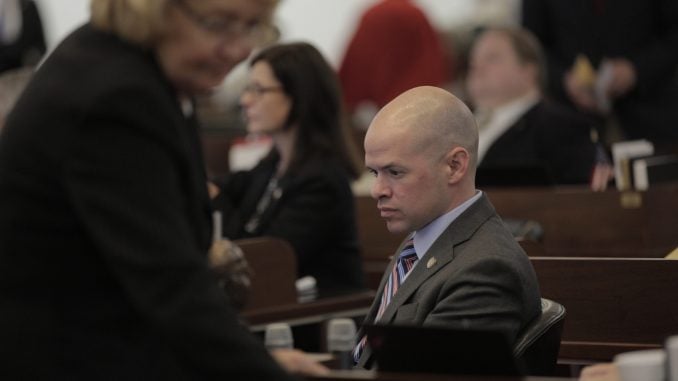
RALEIGH — U.S. Sen. Thom Tillis’ collapse during a morning road race two weeks ago turned out to be a medical false alarm, but it raised the question around the state capital about how a vacated Senate seat would be filled. Rep. Justin Burr (R-Stanly) was already looking into the issue and filed a bill addressing it last month.The current law allows the governor of North Carolina to fill a vacancy on the U.S. Senate with a person from the same political party as the vacating senator, followed by a special election at the next statewide election.”It’s so vague, the way the law’s currently written, that someone could change their political affiliation and technically be of the same political party as the person who vacated a seat, then immediately change back,” Burr said of the current procedure. “So there’s a lot of mischief I think that could come from that method.
“Currently, if one of North Carolina’s senators (both Republicans) vacated their seat, Democratic Gov. Roy Cooper could appoint anyone registered as a Republican, even if they had switched party affiliations recently.”And that would be legal under the current law,” Burr said. “There’s no type of restrictions to stop that, and at least this [legislation] would require some input from folks that tend to think and certainly affiliate with whoever vacated that seat.”
House Bill 659 would let the state executive committee of the vacating senator’s political party to provide the governor with three people to choose from as a replacement.The 17th Amendment of the Constitution grants state legislatures the power to determine how vacated U.S. Senate seats are filled, and Burr said his proposal is in line with what several other states do.”There’s three or four different methods across the country that are typically used,” Burr said. “The method we’re in now is used by some states, but the method that I’m proposing to go to is also used a number of states that put these general restrictions in place to make sure that it is a choice that is recommended by a political party.”
Burr said feedback on his bill has been positive, with several legislators unaware of how ambiguous the current law is. The Tillis incident the senator was fine and back to work that after afternoon made H.B. 659 even more relevant.”I hope this bill never gets used, but certainly after the fact I’ve had several people comment to me about the fact that we just went through this discussion a month ago about my bill,” Burr said. “Then to certainly have this scare happen, it only helps reinforce the need for the legislation.”The bill made it through the House along party lines and was referred to N.C. Senate Rules Committee on April 27.



